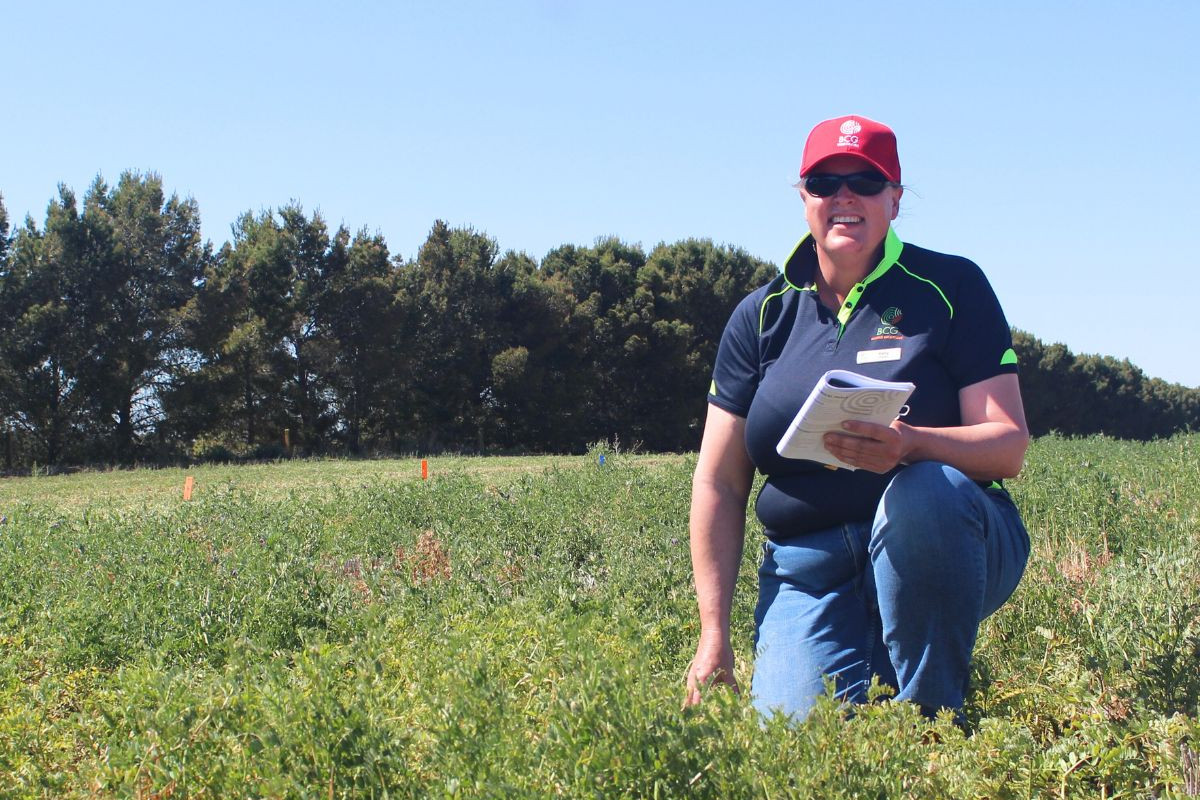Rural
29 August, 2024
By growers, for growers
Pulse agronomy will take centre stage at BCG's Main Field Day later this month.

Showcasing the latest advancements in the sector, leading experts Kelly Angel from BCG, Audrey Delahunty from Agriculture Victoria, Stuart Nagle from SARDI and Jason Brand from Frontier Farming Systems will present breakthroughs in pulse variety selection, disease management and end-use strategies to enhance the role of pulses in farming systems.
The event will take place at Nullawil on September 11.
“The dry season we've experienced in the region underscores the importance of yield stability in ensuring profitability when growing pulses in challenging conditions,” BCG research and extension project manager Ms Angel said,
“Newer pulse varieties are increasingly showing a yield advantage compared to older ones.”
A highlight of the day will be a 'pulse super session' discussing the new vetch varieties that are entering the market.
The session will cover the various end uses of vetch – grazing, hay, brown manure and grain – and their impact on subsequent crops.
Understanding these legacy effects is key to optimising crop rotations and improving soil health.
BCG is currently investigating the performance of existing pulse varieties while also offering an exclusive preview of soon-to-be-released alternatives.
With both vetch and pulse experts on hand, growers will have the opportunity to ask pressing questions about the management of these crops.
Given the early onset of severe Ascochyta blight in lentils across many areas in 2023, disease management will be another key focus of the day.
Discussions will explore variety responses, resistance ratings and the critical timing of product applications to manage diseases like Ascochyta blight and Botrytis grey mould effectively.
[CROSSHEAD]Business performance
Agricultural economist Professor Ross Kingwell will also speak during the day, revealing the top farm performance factors.
After tracking the financial performance of 250 farms over 10 years, Professor Kingwell said
there were factors farmers might not expect.
“Farming is not a nine-to-five job and it can’t be," he said.
"You have to commit to that lifestyle to be successful.
"You do have to put in 70-hour weeks at various times of the year.
“In contrast, the most successful farms are not the work-alcoholic businesses.
"Rather, it's those who spend more time focusing on planning: farmers who are okay with more office and phone time rather than the doing – the cab or maintenance time, for example.”
Professor Kingwell said the research also showed strong social networks and personal development were key performance indicators.
“While social supports within the businesses proved positive, those outside the organisation – including networking with advisers and researchers – also boosted farm performance,”
he said.
“Success in farming is about getting the big decisions right, but it’s also about the one
percenters: doing the smaller things at the right time in the right way."
Farm expansion and machinery investment were also key performance factors which
Professor Kingwell will expand on on Wednesday.
[CROSSHEAD]Grain supply chains
Professor Kingwell will also deliver a critical message to growers regarding the importance of understanding and lobbying for protection and improvement of their grain supply chains.
“Victorian farmers can’t change the world price of grain," he said.
"Supply grain costs beyond the farmgate get taken off that world grain price to create farm-gate returns for farmers.
“To boost the farm-gate price, farmers need their supply chains to be effective and cost-
efficient.
"But individual farmers can’t easily alter the cost of supply chains in their region.
"As a group, however through their political lobby groups, farmers can advocate for investment
and improved management of the supply chains on which they rely."
Professor Kingwell is in the School of Agriculture and Environment at the University of
Western Australia and is chief economist in the Department of Primary Industries and Regional Development.
He says strategic action is needed in Victoria as its grain production continues to trend upwards:
"Unlike other main grain export states like WA or SA, Victoria’s grain supply chains need to
be multidirectional and highly flexible," Professor Kingwell said.
"Its grain exports need to flow to container and bulk ports, or flow interstate when drought hits NSW and Queensland.
"The wide range of domestic users of grain also need to be serviced."
BCG’s Main Field Day traditionally offers the latest in local agronomic research to farmers, agronomists and advisors.
In addition to pulse agronomy, the event will cover new cereal varieties, canola establishment, long-coleoptile wheat, and disease management in wheat and barley.
Complimentary attendance is a benefit of BCG membership.
Tickets at $50 a head for non-members can be purchased from the BCG website.
Meals can also be pre-booked there.
For biosecurity reasons visitors are asked to ensure that all footwear and vehicles are free of soil before they arrive a the site.
More information: bcg.org.au/events